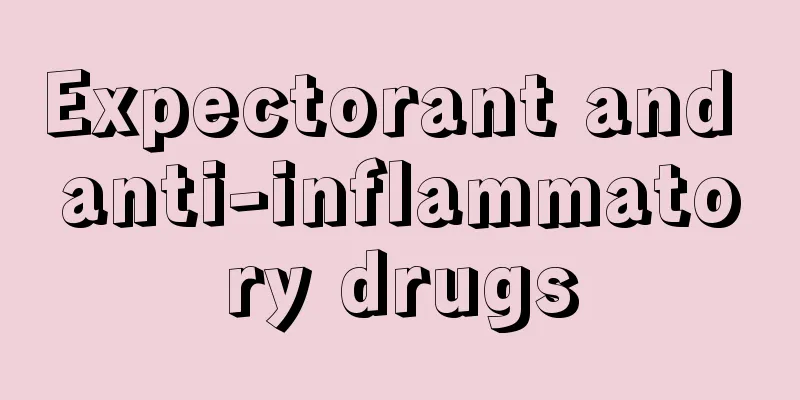Expectorant and anti-inflammatory drugs

|
Due to the current serious air pollution, most people have more or less respiratory diseases, and have problems with nausea and phlegm. If you have phlegm, you can directly use medicines containing mint ingredients, which can help you breathe more smoothly. For more serious situations, we can use certain anti-inflammatory drugs to help us effectively eliminate phlegm. Expectorants can be divided into three categories based on their mode of action: 1. Nausea and irritation expectorants: ammonium chloride and guaifenesin are nausea expectorants. After oral administration, they can irritate the gastric mucosa, causing mild nausea, and reflexively promote the increase in secretion of respiratory glands, thereby diluting sticky phlegm and making it easier to cough up. Irritation expectorants are some volatile substances, such as eucalyptus oil and benzoin tincture. When added to boiling water, the volatilization of their vapor can also irritate the respiratory mucosa, increase secretion, and dilute phlegm and make it easier to cough up. 2. Sputum dissolving agents: such as acetylcysteine, which can decompose the sticky components in sputum, liquefy sputum, reduce viscosity and make it easier to cough up; 3. Mucus regulators: such as bromhexine hydrochloride and carbocysteine, act on the mucus-producing cells in the trachea and bronchi, reducing the viscosity of secretions and making sputum thinner and easier to cough up. Mucus hypersecretion is a common feature of many acute and chronic airway diseases, such as acute tracheobronchitis, chronic obstructive pulmonary disease, bronchial asthma, bronchiectasis and pneumonia. Excessive mucus secretion can cause mucociliary system clearance dysfunction and local defense function damage, leading to airway obstruction and infection that are difficult to control, directly affecting the progression of the disease. The mechanisms of action of expectorants include: ① improving the physical and chemical properties of sputum and reducing sputum viscosity; ② restoring the normal structure of the airway epithelial mucus layer and promoting ciliary clearance function; ③ inhibiting the production and secretion of mucin, destroying the viscous structure in sputum, and reducing sputum viscosity; ④ anti-inflammatory damage or enhancing antibacterial effects. Many expectorants promote mucus clearance by acting through a combination of one or more of the above pathways. |
<<: Taking anti-inflammatory drugs can cause heart weakness
>>: How to use anti-inflammatory drugs for bronchial pneumonia
Recommend
What causes bleeding in the ears after drinking? You need to know these 5 things to note
Many people often have to drink at the table beca...
What is cryopreservation?
Rhinitis is a very common disease. There are many...
How long should I apply medicine to the incision after thyroid cancer surgery
There is no clear time limit for changing the wou...
What foods help digestion and absorption?
During festivals, there are many food choices on ...
Postoperative care methods for prostate cancer Postoperative precautions for prostate cancer
Prostate cancer is a serious malignant tumor dise...
Scalp injections for hair loss treatment
In order to quickly cure the annoying hair loss, ...
What are the adverse effects of always being constipated?
I believe that most people don’t pay much attenti...
Can a person live without a stomach?
We will find that many people need to have their ...
What are the treatments for hypertension
The proportion of elderly people in today's s...
The efficacy of soaking hawthorn and chrysanthemum in water
As we all know, hawthorn and chrysanthemum have m...
Is bone cancer an infectious disease?
Is bone cancer an infectious disease? This questi...
What are the dietary treatments for kidney cancer?
In recent years, kidney cancer has become one of ...
What sleeping position is less likely to cause snoring?
The small habits in life can have a serious impac...
Which men are prone to prostate cancer? These 3 types of men are prone to prostate cancer
Prostate cancer is a malignant disease of men, wh...
What medicine should I take if drinking alcohol hurts my stomach
We know that drinking alcohol hurts the liver. In...









